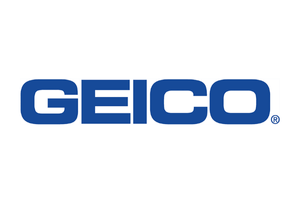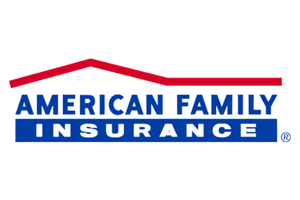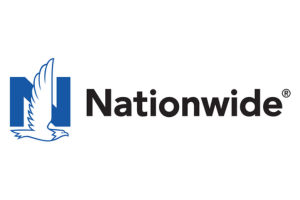How To File a Homeowners Insurance Claim in Virginia
Are you a homeowner in Virginia? Discover the step-by-step process of filing a homeowners insurance claim in Virginia. Learn the essential guidelines and tips to ensure a smooth and successful claim settlement. Don't miss this valuable resource for Virginia homeowners!
Read more Secured with SHA-256 Encryption





Save Money by Comparing Insurance Quotes
Compare Free Home Insurance Quotes Instantly




Table of Contents
Table of Contents


Insurance Content Managing Editor
Daniel S. Young began his professional career as chief editor of The Chanticleer, a Jacksonville State University newspaper. He also contributed to The Anniston Star, a local newspaper in Alabama. Daniel holds a BA in Communication and is pursuing an MA in Journalism & Media Studies at the University of Alabama. With a strong desire to help others protect their investments, Daniel has writt...
Daniel S. Young


Licensed Insurance Producer
Dani Best has been a licensed insurance producer for nearly 10 years. Dani began her insurance career in a sales role with State Farm in 2014. During her time in sales, she graduated with her Bachelors in Psychology from Capella University and is currently earning her Masters in Marriage and Family Therapy. Since 2014, Dani has held and maintains licenses in Life, Disability, Property, and Casualt...
Dani Best
Updated September 2024
In the unfortunate event that you experience property damage to your home in Virginia, it’s essential to understand how to file a homeowners insurance claim. This guide will walk you through the process and provide helpful tips to ensure a smooth and successful claim.
Understanding Homeowners Insurance in Virginia
Before diving into the claims process, it’s important to have a basic understanding of homeowners insurance in Virginia. Homeowners insurance is designed to protect your property and belongings in case of unexpected events, such as fire, theft, or natural disasters like hurricanes or flooding.
Virginia, known for its rich history and diverse landscapes, presents unique challenges when it comes to homeowners insurance. The state is susceptible to various weather-related risks, including hurricanes, floods, and earthquakes. Understanding the specifics of homeowners insurance in Virginia will ensure that you have the appropriate coverage to safeguard your home and possessions.
The Basics of Homeowners Insurance
Homeowners insurance typically covers the structure of your home, personal belongings, liability for accidents that occur on your property, and additional living expenses if your home becomes uninhabitable due to covered events. It’s important to review your policy’s coverage limits and deductibles to ensure that you have adequate protection.
When it comes to covered incidents, most homeowners insurance policies in Virginia classify them into two categories: named perils and all-risk. Named perils policies specifically list the events that are covered, while all-risk policies cover all events unless specifically excluded. Understanding the type of policy you have will help you comprehend the extent of your coverage.
Specifics of Homeowners Insurance in Virginia
Virginia homeowners insurance policies may include specific provisions due to the state’s unique geographical challenges. The Atlantic coastline makes Virginia susceptible to hurricane activity, and the proximity to rivers and low-lying areas increases the risk of flooding. Additionally, certain regions in Virginia are located within seismic zones, making them prone to earthquakes.
As a homeowner in Virginia, it’s crucial to understand these specific provisions, as they may affect your coverage and the claims process. For instance, some policies may require additional coverage for flood or earthquake damage, as these events are not typically included in standard homeowners insurance policies. It’s essential to review your policy and consult with your insurance provider to ensure that you have the necessary coverage in place.
Virginia’s Department of Insurance provides valuable resources and information to help homeowners navigate the intricacies of homeowners insurance in the state. They offer guidance on policy options, coverage requirements, and steps to take in case of a claim. Familiarizing yourself with these resources can empower you to make informed decisions regarding your homeowners insurance.
In conclusion, homeowners insurance in Virginia is a vital safeguard against unexpected events that can damage your property and belongings. By understanding the basics of homeowners insurance and the specific provisions in Virginia, you can ensure that you have the appropriate coverage to protect your home and peace of mind.
Free Home Insurance Comparison
Compare Quotes From Top Companies and Save
Secured with SHA-256 Encryption
When to File a Homeowners Insurance Claim
Knowing when to file a homeowners insurance claim is crucial to ensure timely assistance and reimbursement for property damage. Here are some guidelines:
Assessing Property Damage
Before filing a claim, thoroughly assess the damage to your property. Take photos and video of the affected areas to document the extent of the damage. This evidence will be crucial in supporting your claim and ensuring appropriate compensation.
If the damage is extensive and requires immediate attention to prevent further loss or ensure safety, take necessary steps to mitigate any further damage, like covering broken windows or patching damaged roofs. Document any temporary repairs you make and the associated expenses.
Additionally, it is important to consider the potential hidden damages that may not be immediately visible. For instance, a leaking pipe behind a wall may lead to mold growth, which can cause significant health hazards. Therefore, it is advisable to have a professional inspection to identify any underlying issues that may require attention.
In some cases, the damage may not be easily quantifiable. For example, if your property has sentimental value, such as a family heirloom, that gets damaged, it can be emotionally distressing. While insurance may not fully compensate for sentimental value, it is still worth including such items in your claim to ensure that you receive the maximum possible reimbursement.
Understanding Covered Incidents
Review your insurance policy to determine if the damage falls under covered incidents. Keep in mind that some events may have specific limitations or exclusions. For example, certain types of water damage may not be covered, or coverage for high-value items like jewelry may be capped.
It is essential to familiarize yourself with the terms and conditions of your policy to avoid any surprises when filing a claim. Some policies may require you to report the incident within a specific timeframe, so be sure to adhere to any such requirements to ensure your claim is not denied due to late reporting.
If you’re unsure about whether an incident is covered, contact your insurance company and inquire before filing a claim. They can provide guidance on the eligibility of the damage for coverage.
Furthermore, it is worth noting that some insurance policies offer additional coverage options that you may not be aware of. For instance, certain policies may include coverage for temporary living expenses if your home becomes uninhabitable due to covered damage. Exploring these options can help you make the most of your insurance coverage and minimize any financial burden.
Remember, filing a homeowners insurance claim is a significant decision that can impact your future premiums. Therefore, it is crucial to evaluate the situation carefully and consult with professionals, such as public adjusters or insurance agents, if needed, to ensure you make an informed choice.
Steps to File a Homeowners Insurance Claim in Virginia
Once you’ve assessed the property damage and confirmed it’s a covered incident, follow these steps to file a homeowners insurance claim in Virginia:
Contacting Your Insurance Company
Notify your insurance company as soon as possible after discovering the damage. Most policies require prompt reporting of the incident to ensure a smooth claims process. Contact your insurance company through their designated claims hotline or the contact information provided in your policy documents.
During the initial contact, be prepared to provide essential details, such as your policy number, date of loss, a brief description of the damage, and your contact information.
It’s important to remember that the sooner you contact your insurance company, the sooner they can start the claims process and provide you with the necessary assistance. They will guide you through the entire process and answer any questions or concerns you may have.
Documenting the Damage
As mentioned earlier, documenting the damage is crucial for supporting your claim. Take detailed photographs and videos of the affected areas from various angles. Make a list of damaged items and their estimated value.
When documenting the damage, it’s important to capture the extent of the destruction. Take close-up shots to highlight any specific damages and wide-angle shots to provide an overall view of the affected areas. This visual evidence will serve as valuable proof during the claims process.
To strengthen your claim, gather any relevant documents, such as receipts or appraisals for valuable belongings. These documents will help establish the value of the damaged items and assist the insurance adjuster in accurately assessing your claim.
If possible, retain damaged items until the insurance adjuster has assessed them. This will allow them to inspect the items firsthand and verify the extent of the damage.
Filling Out the Claim Forms
Your insurance company will provide you with claim forms that need to be completed and submitted. Take your time to accurately fill out these forms, ensuring you provide all the requested information.
The claim forms will typically require you to provide details about the incident, including the date and time it occurred, a description of the damage, and any supporting documentation you have gathered. It’s important to be thorough and provide as much information as possible to avoid delays in the claims process.
Attach any supporting documentation, such as photographs, lists of damaged items, and receipts. These documents will serve as evidence to support your claim and help the insurance company assess the damages accurately.
Keep copies of all documents for your records. It’s always a good idea to have a backup of all the information you submit to the insurance company. This will help you stay organized and provide easy access to any necessary documents throughout the claims process.
Working with Insurance Adjusters
After filing your claim, an insurance adjuster will be assigned to evaluate the damage and determine the amount of compensation. Here are some key points to keep in mind:
When it comes to dealing with insurance claims, working with an insurance adjuster is an essential part of the process. These professionals are responsible for assessing the damage to your property and determining the amount of compensation you are entitled to. Understanding how to effectively work with insurance adjusters can help ensure a fair and timely resolution to your claim.
What to Expect During the Adjuster’s Visit
Once your claim has been filed, the insurance adjuster will schedule a visit to your property to assess the damage. It’s important to be prepared for this visit and provide the adjuster with access to all areas affected by the incident. By doing so, you can ensure that they have a comprehensive understanding of the extent of the damage.
During the visit, it’s helpful to show the adjuster the evidence you’ve gathered, such as photographs and videos. This visual documentation can provide additional support to your claim and help the adjuster accurately assess the damage. Additionally, providing any additional supporting documentation and answering any questions the adjuster may have can further assist in the evaluation process.
While the adjuster is assessing the damage, it can be beneficial to take notes on their observations. This will ensure that their assessment accurately captures the extent of the damage. If you have any concerns about their assessment, it’s important to politely express them and seek clarification. Open and clear communication with the adjuster is key to ensuring a fair evaluation of your claim.
Negotiating Your Claim
Once the adjuster has evaluated the damage, they will present you with a settlement offer. It’s crucial to carefully review this offer and compare it to your own assessment and the costs of necessary repairs or replacements. This will help you determine if the offer is fair and adequate.
If you believe the offer is inadequate or if there are discrepancies between your assessment and the adjuster’s evaluation, it’s important not to hesitate in negotiating with the adjuster. Presenting any additional evidence or expert opinions that support your assessment of the damage can strengthen your position during the negotiation process.
During the negotiation process, it’s important to be patient and persistent. Remember, the adjuster’s goal is to reach a fair settlement. By maintaining open communication and providing any requested information promptly, you can help facilitate this process. It’s also important to keep in mind that negotiation is a normal part of the claims process, and it may take some time to reach a resolution that both parties are satisfied with.
In conclusion, working with insurance adjusters can be a crucial part of the claims process. By understanding what to expect during the adjuster’s visit and how to effectively negotiate your claim, you can ensure a fair and timely resolution to your insurance claim.
Free Home Insurance Comparison
Compare Quotes From Top Companies and Save
Secured with SHA-256 Encryption
What to Do If Your Claim is Denied
If your homeowners insurance claim is denied, it’s important not to lose hope. Here’s how you can navigate this situation:
Understanding the Reasons for Denial
Contact your insurance company to understand the specific reasons for the denial. The denial letter should provide details on why the claim was not approved. Review your policy and the claim documents to ensure you meet all the required criteria.
If you believe the denial is unjustified, consider seeking legal advice or contacting your state’s insurance regulatory agency for guidance on disputing the decision.
Appealing the Insurance Company’s Decision
If you decide to appeal the denial, gather all supporting documentation and evidence to strengthen your case. Follow the appeal process outlined by your insurance company, and be sure to meet all deadlines and requirements.
Consider consulting with a professional, such as a public adjuster or an attorney specializing in insurance claims, who can help navigate the appeals process and advocate on your behalf.
Conclusion
Filing a homeowners insurance claim in Virginia can be a complex process, but with the right knowledge and preparation, you can increase your chances of success. Understanding your policy, documenting the damage, following the proper steps, and working with insurance adjusters are all key components of a successful claim. In case of denial, explore your options for appealing the decision and seek professional guidance if needed. Remember, your insurance policy is there to protect you and provide financial assistance when the unexpected occurs.
Frequently Asked Questions
What is homeowners insurance?
Homeowners insurance is a type of insurance policy that provides financial protection to homeowners in case of damage or loss to their property. It typically covers the structure of the home, personal belongings, liability for accidents, and additional living expenses if the home becomes uninhabitable.
When should I file a homeowners insurance claim?
You should file a homeowners insurance claim as soon as possible after experiencing damage or loss to your property. It is important to notify your insurance company promptly to ensure a smooth claims process and to meet any time limits specified in your policy.
What steps should I take to file a homeowners insurance claim in Virginia?
To file a homeowners insurance claim in Virginia, follow these steps:
1. Contact your insurance company or agent to report the damage or loss.
2. Document the damage by taking photos or videos.
3. Make temporary repairs to prevent further damage if necessary.
4. Keep records of any expenses related to the claim.
5. Cooperate with the insurance company’s investigation and provide any requested documentation.
6. Review the settlement offer and negotiate if needed.
7. Once the claim is settled, make any necessary repairs or replacements.
What information do I need to provide when filing a homeowners insurance claim?
When filing a homeowners insurance claim, you will typically need to provide the following information:
– Your policy number
– Date and time of the incident
– Description of the damage or loss
– Details about how the incident occurred
– Contact information for any involved parties
– Police reports or incident reports, if applicable
– Any supporting documentation such as photos, videos, or receipts
What should I do if my homeowners insurance claim is denied?
If your homeowners insurance claim is denied, you can take the following steps:
1. Review the denial letter carefully to understand the reason for the denial.
2. Contact your insurance company or agent to discuss the denial and seek clarification.
3. Provide any additional information or documentation that may support your claim.
4. Consider filing a formal appeal or complaint if you believe the denial is unjustified.
5. Consult with an attorney specializing in insurance claims, if necessary.
Get a FREE Quote in Minutes
Insurance rates change constantly — we help you stay ahead by making it easy to compare top options and save.

